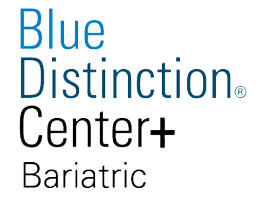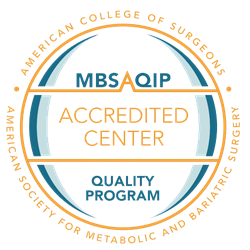What is recovery like after surgery?
First off, everyone is different in their response to pain and healing rate. Based on the many weight loss surgery and general surgery procedures we have performed at RMAP we have seen patterns that hold for most people. Please realize that these are generalized expectations and some of them may not represent precisely what you will experience.
After surgery we will keep you in the hospital overnight for observation and pain management. We want to be sure that you can get fluids down without pain or nausea prior to going home. We also want to watch very closely for that first 24 hours for any signs of complications. Even though complications are rare, if we catch them early and address the problem, it will be much less of an issue long term. Most people are able to go home the next day although if there are any concerns about recovery we will keep you another night. Expect to be sore, but walking several times a day is imperative. It does not have to be a great distance, but getting up and moving will help prevent blood clots. Try to walk a little further each day. Many people are able to return to work/normal daily activities after about 1 week although everyone is different and some need up to 2 or even 3 weeks.
All patients should avoid strenuous activities and heavy lifting for 2 weeks after surgery due to the risk of causing a hernia. We recommend removing wound dressings after 48 hours or so. At that point you can shower, but not submerge the wounds until 2 weeks out from surgery. You will be on a liquid diet for the first week after surgery and then advance according to the bariatric diet guidelines. Most people note that they feel quite fatigued for several weeks after surgery. That is related to the amount of energy your body will require to heal, but it also comes from the decreased caloric intake after surgery. While this often lasts for several weeks, it does pass.
Is there a diet I must follow prior to surgery?
All patients are advised to complete a preoperative diet to help shrink the liver. This low-calorie diet is not to prove weight loss is possible. Many patients have an enlarged liver due to excess weight, particularly if they have type 2 diabetes. Studies show that following a low calorie (800–1,000 calorie per day) for two weeks prior to surgery can shrink the liver up to 30%. This reduction in size makes the operation much safer to be performed.
Patients are given examples of high nutrient value foods that can be consumed during the pre-surgery diet. We do not advise liquid calories, or protein replacements at any time. If patients are unsuccessful at completing the pre-surgery diet, and the liver is too large to perform the operation safely, the operation will be stopped and a six week low calorie diet must be followed before attempting the operation again. The tools to succeed on the pre-surgery diet, and its importance is stressed during the preparation phase. It is rare that surgery cannot be performed when patient do their best to complete the pre-surgery diet.
What Are the Insurance Guide’s for Nutritional Help?
You can go here for the updated guide!
Can I get pregnant after weight loss surgery?
Yes, in fact studies show that babies born to mothers who had weight loss surgery, specifically studied in gastric bypass and duodenal switch patients, are healthier in general than babies due to mothers who are morbidly obese. Babies born to morbidly obese mothers have much higher likelihood of becoming morbidly obese themselves and suffering from type 2 diabetes.
We do advise patients to wait approximately 18 months after bariatric surgery to become pregnant. This will allow for maximal weight loss, stabilization of a healthy weight, and the time to develop a healthy lifestyle routine. These will support a healthy pregnancy and long-term success of mother and family. Becoming pregnant before a healthy weight is establish will reduce how much weight is lost. While patients can have healthy pregnancies during the first year with no detrimental effects on the health of the baby or mother, it may be an added stress to both. Pregnancy often leads to many hormonal changes that can promote weight gain, increase cravings, and lead to decrease activity. Many women during pregnancy gain substantial weight – but if you are in a healthy mindset with a healthy body this substantial weight gain is less likely to occur.
We recommend women who are pregnant or trying to become pregnant to develop an exercise routine, consume high nutrient value foods, and avoid the mentally of “eating for two”. If possible, breastfeeding has great benefits for the mother and baby with studies showing the reduction of unhealthy weight gain and development of weight-related conditions for both.
Women who do not wish to become pregnant, now or in the future, must take appropriate precautions to avoid pregnancy. Many women are infertile due to obesity, but with weight loss fertility returns rapidly. Patients can become unexpectedly pregnant after bariatric surgery. Speak with your surgeon or primary healthcare provider to discuss birth control options after weight loss surgery.
Which surgery is best for me?
At RMAP, we believe that patients should choose their bariatric surgery after receiving quality education about the benefits and risks of each procedure. We strive to provide you with up-to-date and evidence-based information about each surgery to help you with that decision.
We offer four surgeries for weight loss and resolution of co-morbid conditions:
• Roux-en-Y gastric bypass (GBP, “bypass”)
• Sleeve gastrectomy (SG, “sleeve”)
• Biliopancreatic diversion with duodenal switch (BPD/DS, “switch”)
Deciding which surgery is best for you will depend on several things:
• Starting BMI—how much weight you have to lose
• Whether you have type 2 diabetes or not
• Whether you have severe heartburn/reflux or not
• What level of risk you are willing to accept
Gastric Bypass
• Good for patients with any BMI, but particularly those with BMI >45 kg/m2
• Very good for patients with type 2 diabetes (approx. 80% resolution at 1 year, 65% at years)
• Excellent for patients with severe heartburn/reflux (approx. 75% resolution)
Sleeve Gastrectomy
• Good for patients with any BMI, but particularly those with BMI 35-45 kg/m2
• Good for patients without diabetes or those with recently diagnosed diabetes (within 2 years) or those on oral agents alone—long term diabetes resolution has not yet been determined
• Good for patients where to buy phentermine online that is real looking to minimize surgical risk while still achieving a strong weight loss
Duodenal Switch
• Very good for patients with BMI >50 kg/m2, lowest rate of weight regain of any bariatric surgery
• Excellent for patients with type 2 diabetes (approx. 95-98% resolution at 1 year, 70-80% 5 years)
• Good for patients willing to assume a higher surgical risk profile, including vitamin and nutrition considerations
We invite you to learn more about each of the procedures, the benefits and risk of each of them, and what procedure is best for you, by attending our free informational seminar.
What about excess skin after weight loss?
The prospect of losing 100 or more pounds is exciting, but many patients fear that excess or loose skin will be a problem. For most patients, the health benefits and smaller sizes that accompany significant weight loss more than compensate for excess skin. However, most patients will experience at least some loose skin, and there are some ways to minimize this issue:
• Core strengthening (e.g. yoga)
• Aerobic exercise (brisk walking, running, biking, swimming)
• Eat lean (avoid high fat, high carb foods)
• Avoid smoking
• Avoid too much sun exposure (some sun exposure is good for vitamin D absorption)
For patients who feel that, despite their best efforts, they have unwanted hanging or loose skin, plastic surgery is an option. About 25-30% of our patients seek a plastic surgery referral to remove excess skin via a tummy tuck, breast lift, brachioplasty (arms), or face lift, etc. The surgeons at RMAP do not perform this type of surgery but can provide you with referral sources of trusted plastic surgeons that have worked with our patients before and have a good track record. Rarely, insurance may cover skin removal surgery if hygiene or other medical issues are associated with the excess tissue. Check with your insurance company to see if they provide these benefits and what criteria may be involved.
If plastic surgery is not an option financially or otherwise, some patients use body hugging garments (e.g. spandex-type products), but these garments do not shrink or eliminate the excess skin.
Can I drink alcohol after surgery?
Patients are advised to avoid alcohol for the first year after weight loss surgery. Alcohol is a potent appetite stimulant, and a mood altering drug. Combined with the empty calories, and irritation to the new stomach, consuming alcohol can lead to weight gain and risk of alcohol abuse. Studies show that alcohol is more rapidly absorbed, and metabolized more slowly after bariatric surgery leading to possible serious side effects from intoxication.
All patients are advised to speak with their surgeon before consuming alcohol. If alcohol is introduced it should be done so cautiously with careful monitoring of consumption. If you find you are having problems with alcohol seek professional help.
Can I diet instead of having surgery?
You are more than welcome to diet instead of having surgery. “Dieting” can range from extreme crash diets to more subtle forms of diet modification. For patients who need to lose 10-20 pounds, diets that emphasize healthy, sustainable changes may work well. For those who need to lose more than 50-70 pounds (i.e. BMI 35+), however, dieting and exercise alone most often do not result in significant sustainable weight loss. In fact, research shows that less than 5% of patients who have clinically severe obesity are able to lose significant weight and maintain it for more than a year.
All of our patients who undergo bariatric surgery have expended considerable effort at dieting prior to surgery, and some have achieved significant weight loss at least for a period of time. Most patients, however, have been unable to sustain significant weight loss with dieting and exercise alone, which is why they are interested in surgery as a tool for durable weight control. A key part of maintaining successful weight loss after bariatric surgery is continuing to follow a healthy diet and regular exercise as well.
Studies have shown that fad or crash diets often do more harm than good, as they can slow metabolism and increase hunger hormones which remain elevated even after the diet has ended. This phenomenon results in yo-yo effect that many patients see as they lose 20, only to gain 30 pounds; lose 30, gain 40, etc. A more sustainable approach to dietary modification is the reduction or elimination of one or two unhealthy habits, such as soda pop drinking or late night snacking, being careful not to compensate for these empty calories elsewhere.
Bariatric surgery that affects gastrointestinal hormones (e.g. sleeve, bypass, and switch) affects metabolism in a favorable way to decrease hunger and increase satiety, thus helping you sustain a small-volume, high-protein diet long into the future. For this reason, bariatric surgery together with healthy eating and exercise is more successful than dieting and exercise alone in virtually every research study that has compared the two.
Are there certain foods I have to avoid after surgery?
Yes. This is not the forum to crate an exhaustive list, but to discuss principles. What it boils down to is: carbohydrates and appetite stimulants.
For the first month after surgery no additional carbohydrates at all. All your meals should be 70% protein and 30% vegetables. Remember, as you are experiencing this rapid weight loss your body is altering its “set point.” If you begin to eat additional carbohydrates your weight loss will slow or even stop and your new set point will not be as low at it would have been without the carbs. You will also be putting in place your new habits that will stick with you indefinitely after your surgery and you want those to be as healthy as possible.
Appetite stimulants are common in our environment. Soda, diet or regular, carbonation in general, caffeine, coffee, tea, artificial sweeteners, and sugar are all potent appetite stimulants. While it’s frankly not possible to eliminate all of them completely from your diet, you should make every effort to avoid these as they will tend to make you hungry and cause you to crave sweets. Do not sabotage yourself!
I have attended the Risk and Benefits Class or watched it online, where do I go from here?
Your next step will be to fill out the Patient Information Form and send it, along with a copy of the front and back of your insurance card, to our office. This paperwork can be emailed to forms@rmapinc.com or faxed to us at 801-268-3997
Once we have this paperwork, we can enter you as a patient in our system and contact your insurance company.
Will my Insurance cover surgery?
This will depend entirely on your insurance plan and, often, your employer group. You can go here for more information on insurance coverage!
Coverage for Bariatric Surgery is almost exclusively found in large employer groups, with the exception of Medicare, Medicaid, and Military insurances, and is an inclusion for which your employer can either opt in or out. Fortunately, we are seeing more and more insurance companies making it easier and more cost-effective for employer groups to include coverage for surgery. We are also seeing more employers recognizing the value a Bariatric benefit can bring to the lives of their employees.
Unfortunately, small employer plans (>50 employees) and individual or Marketplace plans do not offer surgery coverage and do not allow for the chance to purchase a coverage rider for surgery.
My insurance says that they don’t cover Weight Loss Surgery, can I have my doctor write a note to appeal?
It is always within your rights to appeal to your insurance company. Over the years, however, we have found it be ineffective. If your plan does not have a Weight Loss Surgery rider, your insurance will not cover any portion of surgery, regardless of medical conditions, BMI, or doctor recommendations.
We find patients often have more success appealing to their employers or labor unions to add the benefit than in appealing with the insurance to cover an excluded procedure.
What requirements do I have to meet to have surgery?
If your health insurance plan does cover surgery, they will require certain steps and documentation in order to issue an authorization; we refer to these requirements as criteria. The criteria will vary from insurance company to insurance company and even sometimes from employer group to employer group. Your friend’s requirements and timeline to surgery may be very different from yours depending on those criteria.
All insurances will require you to have a diagnosis of morbid obesity. This is shown by a BMI of ≥40, though if you have a co-morbid condition such as Type 2 Diabetes, Obstructive Sleep Apnea or High Blood Pressure, your BMI can be as low as 35.
Though all other criteria will vary, most commonly we see the insurances require a specific length supervised diet program, a one-time visit with a nutritionist for an evaluation and/or a psychological assessment. Additionally, you may be required to get some labs drawn, prove morbid obesity for a number of years or obtain a letter from your Primary Care Provider clearing you for surgery. The idea behind this criterion is to make sure you are prepared emotionally and physically for the changes that surgery will require and to help ease the transition to your new post-operative lifestyle.
If you are planning on paying cash for your surgery at St. Mark’s Hospital, instead of using insurance coverage, you will only have to complete a psychological evaluation. This a St. Mark’s Hospital policy as part of their Center of Excellence standing with MBSQP.
How long does it take from now to surgery?
That will depend entirely on the time it takes to complete your insurance criteria, the consultation schedule, the time it takes for your insurance to approve surgery, and what the surgery schedule looks like once your surgery has been authorized.
Between all of these factors, it means that it is impossible to predict with any accuracy a surgery date and the timeline to surgery will vary from patient to patient.
In general, after criteria has been completed and a consultation appointment attended, the authorization usually takes between 2-3 weeks to get back from the insurance. This will vary from insurance to insurance, however. Once we have an authorization our surgery coordinator will call you to schedule surgery. Surgery usually books about 2-4 weeks in advance, though LDS Hospital can book out as far as 6 weeks. Again, this schedule can change depending on surgeon availability and patient demand.












 Address: 1521 East 3900 South STE 100
Address: 1521 East 3900 South STE 100 Office: +
Office: +  Fax number (801) 268-3997
Fax number (801) 268-3997 Email: info@rmapinc.com
Email: info@rmapinc.com



